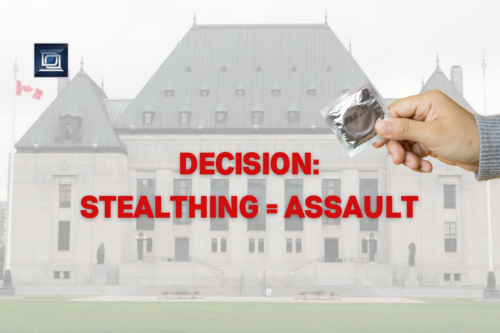Here on our Legal Wire Blog, we’ve previously covered theft charges, as well as shoplifting charges – one of the most common theft charges. Another common form of theft is burglary. Burglary may sound enticing, but we can assure you that the consequences of burglary charges far outweigh the potential reward.
We’ll cover the ins-and-outs of burglary charges, the penalties for the various individual charges that a burglary entails, and what you can do to beat a burglary charge or get the best possible outcome for your case.
If you were caught breaking and entering, stealing property, or committing an act of vandalism, contact the criminal defence lawyers at Dhanu Dhaliwal Law Group as soon as possible. We can help you minimize your penalties and potentially even beat your criminal charges.

What are Burglary Charges?
Burglary is the act of illegally entering a building with the intent to commit a crime, usually theft.
In the Criminal Code, however, burglary is actually called “breaking and entering.”
Here is how the Criminal Code defines breaking and entering:
Breaking and entering with intent, committing offence or breaking out
- 348 (1) Every one who
- (a) breaks and enters a place with intent to commit an indictable offence therein,
- (b) breaks and enters a place and commits an indictable offence therein, or
- (c) breaks out of a place after
- (i) committing an indictable offence therein, or
- (ii) entering the place with intent to commit an indictable offence therein,
- is guilty
- (d) if the offence is committed in relation to a dwelling-house, of an indictable offence and liable to imprisonment for life, and
- (e) if the offence is committed in relation to a place other than a dwelling-house, of an indictable offence and liable to imprisonment for a term not exceeding ten years or of an offence punishable on summary conviction.
The Criminal Code further breaks down the various forms of, and penalties for, breaking and entering. See for yourself under Offences Against Rights of Property in the Criminal Code, but fair warning: the Criminal Code can get very confusing very quickly.
Breaking and entering can be a little bit of a misnomer though – you don’t actually have to break anything in order to be charged with breaking and entering.
As an example, if someone left their window unlocked and you entered their house through this window, without picking any locks or damaging any part of the house, you are still, under the Criminal Code, breaking and entering.
Another common misconception: breaking and entering has nothing to do with stealing. If you burglarized a building, home, store, or another establishment, you actually committed at least two individual crimes: breaking and entering, and theft.
Additionally, if you had to pick a lock, break a window or door, or cause any other form of damage to the property in order to get in, you can be charged for mischief (also known as vandalism) in addition to breaking and entering and theft.
You can see that these criminal charges quickly stack up, making burglary cases very tricky, and nearly impossible to beat on your own.
Breaking and entering/burglary is a very serious offence. When fighting a breaking and entering charge, you will need to retain excellent criminal defence in order to avoid serious penalties such as imprisonment. It is not overstating it to say that your choice of representation can determine your future for decades to come.

The Two Types of Burglary Charges
There are two distinct types of break and enter offences:
- break and enter into a dwelling
- break and enter into a place other than a dwelling.
A dwelling can be a house, apartment or even a garage or recreational vehicle.
A non-dwelling can be a warehouse, a convenience store or any other similar place where someone does not live.
The penalties for your burglary charges will depend on whether you broke into a dwelling or non-dwelling, as well as other aggravating factors, which we will cover next.
The legal differences between a dwelling and a non-dwelling in Canada can vary based on the specific context and legislation involved, including zoning regulations, building codes, tenancy laws, and licensing and permits. You may not be able to tell from the outside if a building could be considered a dwelling or not.
Aggravating Factors for Burglary Charges
Aggravating factors are circumstances that increase the penalties associated with a crime. In the case of breaking and entering or burglary charges, there are several of these aggravating factors.
Home Invasion
If you illegally entered someone else’s home while they were inside, your breaking and entering charge will also come with a home invasion aggravating factor.
A home invasion aggravating factor will increase the penalties of your breaking and entering charge substantially, especially if you threatened the residents or intended to do harm to them.
If you were unaware that the homeowner was inside the house when the burglary took place, you may be able to have your home invasion aggravated factor removed from your charges. This is something that you should discuss with your criminal defence lawyer.
What is the Penalty for Burglary in Canada?
A conviction for breaking and entering into a dwelling with aggravating factors can bring a maximum sentence of imprisonment for life.
Breaking and entering into a non-dwelling or a dwelling when no aggravating factors are found, carries a maximum sentence of 10 years in prison.
These are very serious consequences.
Additionally, these penalties are only for the crime of breaking and entering. Breaking and entering is charged separately from theft. Because of this, your penalties may be much worse if you stole from the building or home in which you unlawfully entered.
The penalties for theft add on to your sentencing, and this can quickly rack up the amount of time you will serve.
With all of this in mind, it’s important for you to retain the services of a criminal defence lawyer that you trust to fight for you. If you were arrested on breaking and entering charges, contact the criminal defence lawyers at Dhanu Dhaliwal Law Group to get started on your case. Call us today, or fill out the form on this page for your initial consultation.






